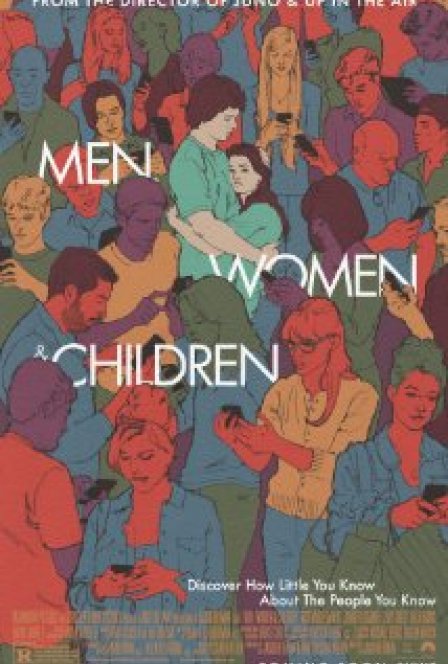Buried deep within the morass of emotional manipulation and technophobic weirdness of Men, Women, & Children is the kernel of a good idea. There probably a very interesting and thoughtful movie to be made about how smartphones, tablets, TVs, and online communication are having a detrimental effect on our real life relationships. This is not that movie.
What we are given instead is a prettied up melodrama that aims to shame people for the poor decisions they make and blaming the Internet for facilitating said missteps. Oh, and it contrasts that with a lot of shots of the Voyager spacecraft floating through space to let us know that, gosh, technology used to be so cool and now it’s being used for porn and to facilitate affairs and for people to pay these silly games on.
The chief instigators of the bad deeds are the film’s precious children, a gaggle of beautiful teens all played by relative unknowns. There’s the 15-year-old who can’t get it up via traditional pornography anymore because the access to the hard stuff online has ruined him (which as a former 15-year-old boy, I must call bullshit on). There’s the sensitive boy who quits the football team because of a Carl Sagan YouTube clip and his favorite online RPG. There’s the cheerleader who keeps a website of scandalous pictures going in hopes of being noticed by a talent scout. And there’s the geeky girl who posts her own risqué snapshots, but under a Tumblr pseudonym lest her overbearing mother find out.
The only teen who actually comes across as realistic is the young girl who has starved herself thin in hopes of being noticed by her dream boy. But director Jason Reitman belabors this point by decorating her room with thousands of pictures of stick figure fashion models, as apparent inspiration.
In a nod to Ice Storm-like plotting, the parents of these kids are, of course, just as bad. They are either using the web to arrange random hookups because their marriage is on the rocks, or in the case of Judy Greer’s character, playing majordomo to her daughter’s sleazy online presence. Reitman and co-screenwriter Erin Cressida Wilson attempt to offer up balance in the form of an overbearing mom played by Jennifer Garner who watches her daughter’s every online interaction like the NSA. That’s not even mentioning Emma Thompson’s omniscient narrator who pointlessly hovers over the whole film lest viewers miss some Very Important Point.
What is never made clear is what Reitman hopes to gain from this whole mess. Is he trying to facilitate discussions about the potential dangers of online addiction? It’s a real concern, I know, but the only people whose ears are going to perk up in response to these dull archetypes and very extreme examples are Fox News contributors and 700 Club subscribers who are going to use this film as teaching material for the next generation of young parents. I even question the use of poor Dennis Haysbert as the naughty man who sleeps with Rosemarie DeWitt’s unsatisfied housewife, stoking further unnecessary fears of dark-skinned men coming to steal nice white women from their goodly husbands. No attempt to try to even the scales by having the character’s husband (Adam Sandler) engage in his own misdeeds is enough to wipe that idea away.
My biggest fear about this film is this: that, like Crash before it, certain folks in Hollywood are going to hold Men, Women, & Children as a jewel of Important Cinema, and make a push for it to win multiple Academy Awards. It’s up to us to make sure that that doesn’t happen. Your first step on this mission: avoid this movie at all costs.

